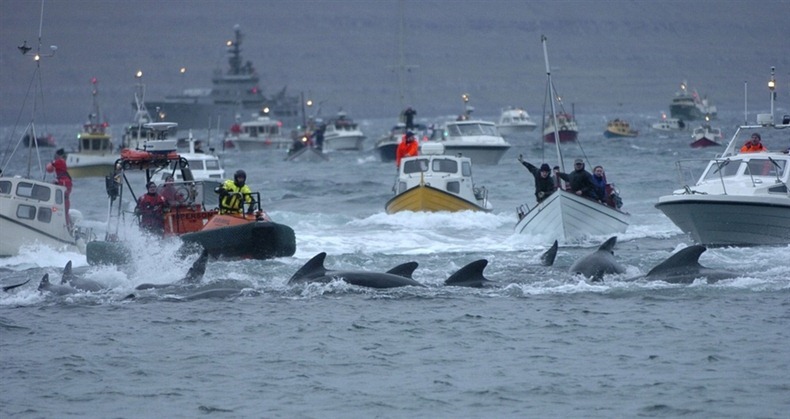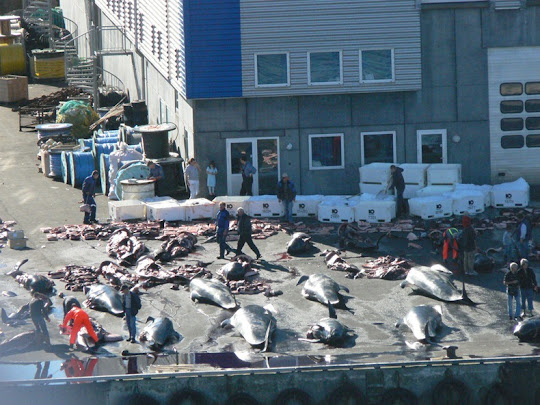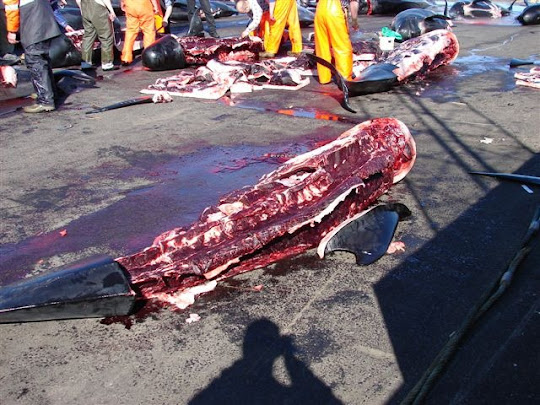
Being an autonomous province of Denmark, where whaling is banned, the Faroe Islands’ laws allow the mass slaughter of pilot whales, beaked whales and dolphins to observe the annual tradition. Whaling in the Faroe Islands in the North Atlantic has been practiced since about the time of the first Norse settlements on the islands. The meat and blubber of pilot whales have long been a part of the islanders' national diet.
Despite criticism from animal rights groups and International Whaling Commission, the whale hunting custom continues to kill thousands of whales year after year. Around 950 Long-finned Pilot Whales are killed annually, mainly during the summer.
The American Cetacean Society says that pilot whales are not considered to be endangered, but that there has been a noticeable decrease in their numbers around the Faroe Islands.










Source
